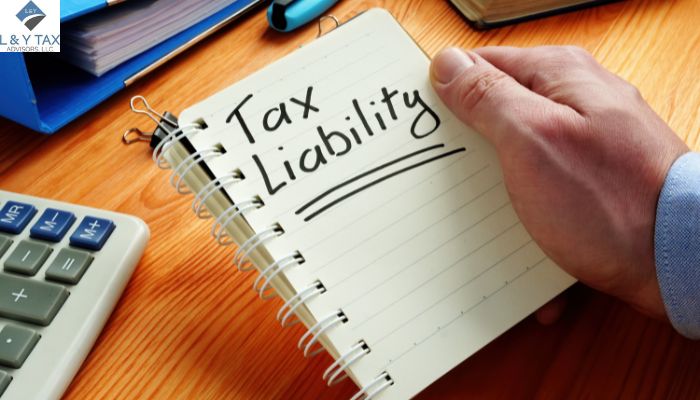What can a CPA do that an Accountant can’t?
Accounting and finance play critical roles in the monetary management of businesses. Many people use the words ‘CPA’ (Certified Public Accountant) and ‘accountant’ interchangeably. However, they are not the same. This is the point where you need to understand what can a CPA do that an accountant can’t.
While both CPAs and accountants work with money, their credentials, duties, and competencies differ significantly. Therefore, it is paramount to look at what can a CPA do that an accountant can’t, as well as the differences in their jobs and responsibilities.
What can a CPA do that an Accountant can’t?
Let’s find out what can a CPA do that an accountant can’t.
- Legal and Regulatory Prerequisites
CPAs are held to a higher degree of ethics and accountability since they have a fiduciary commitment to the public. They must also follow a code of professional behavior and face disciplinary action if they break these requirements. This regulatory monitoring guarantees that CPAs adhere to the highest standards of ethics and trustworthiness in their profession.
Accountants, while expected to uphold ethical standards, are not subject to the same amount of regulatory scrutiny or legal duties as CPAs. As a result, CPA services are frequently sought for duties requiring the highest degree of trust and responsibility, such as reviewing financial accounts and delivering expert witness evidence in judicial processes.
- Unique Services
CPAs can provide specialized services that go beyond basic accounting. For instance, they can offer extensive tax planning and preparation services. CPAs have a thorough awareness of the ever-changing tax rules and regulations, enabling them to assist people and corporations in minimizing their tax bills while remaining in compliance with tax standards.
CPAs may also help with financial and estate planning, making them useful partners for individuals and families trying to safeguard their financial future. They can offer advice on retirement planning, financial strategies, and estate preparation, drawing on their significant experience in these areas.
- Auditing Knowledge
Auditing is one of the most important tasks of a CPA. CPAs are frequently in charge of auditing and evaluating financial records to ensure correctness and adherence to accounting principles and laws. This service is critical for public firms since they must have their financial statements audited by an independent CPA by law.
Accountants may not be authorized to conduct audits. They can help prepare financial accounts and keep reliable records. However, they do not have the legal ability to provide audit reports. As a result, CPAs are the specialists of choice for enterprises and organizations that require impartial financial statement audits.
- IRS Audit
If you are facing an IRS audit or have complicated tax difficulties, having a CPA on your side might make all the difference. CPAs can represent you in front of the IRS, functioning as a liaison between you and the tax authorities. They can provide an explanation of your financial status, respond to IRS inquiries, and negotiate settlements or payment arrangements on your behalf.
Accountants do not have the same representation privileges as CPAs. Thus, they cannot speak directly with the IRS on your behalf. While they can still be of service in tax concerns, CPAs give an additional degree of experience and protection when dealing with the IRS.
- Professional Development
To keep their license, CPAs must participate in continual professional development. They must be informed about changes in tax laws, accounting standards, and regulations. This dedication to lifelong learning guarantees that CPAs are up to date on the newest innovations in their area.
Accountants may not have the same amount of professional development requirements as other professions. While many accountants are committed to remaining current, the lack of obligatory continuous education might result in accountants with various degrees of experience.
- Business Valuing
CPAs have the experience needed to give accurate and defensible company appraisals when it comes to evaluating a corporation. They analyze a company’s worth using a number of methodologies, including the income approach, market approach, and asset-based approach. These appraisals are frequently needed for objectives such as mergers and acquisitions, estate planning, and shareholder conflicts.
Accountants may not have the same degree of company valuation training and knowledge, making them unsuitable for complicated valuation tasks. CPAs are better able to manage such responsibilities due to their specific understanding.
Basic Difference: Education and Licensing
Before unfolding the details about what can a CPA do that an accountant can’t, it is important to begin with the basic differential factor – education.
The amount of schooling and license requirements is one of the most important distinctions between a CPA and an accountant. CPAs must complete stringent educational requirements, including a bachelor’s degree in accounting and passing the CPA exam. This test is well-known for its difficulty, ensuring that CPAs have a strong understanding of accounting concepts, tax regulations, and auditing procedures.
Accountants may not need to qualify for a standardized test. Their educational history might vary greatly. While some accountants have a degree in accounting or a related discipline, others may have qualifications that are not solely accounting-related.
Conclusion
Concluding the differences between what can a CPA do that an accountant can’t, you must acknowledge that both play important roles in the financial world. CPAs provide a greater degree of experience and specialized services. Accountants are distinguished by their demanding education, license, regulatory requirements, and continual professional development. CPAs are capable of handling difficult responsibilities, such as auditing, tax representation, business valuation, and specialist financial and estate planning, making them the preferred choice for people and organizations wanting the greatest degree of financial competence and integrity.
Whether you’re dealing with complicated tax concerns, need an audit for your business, or need professional financial advice, our CPA firm Woodlands, shall provide you peace of mind knowing your financial affairs are in skilled hands. Finally, the decision between a CPA and an accountant will be determined by your demands and the amount of knowledge necessary to achieve your financial objectives.


